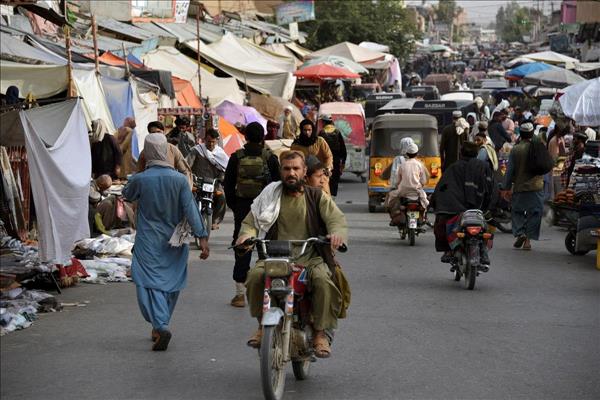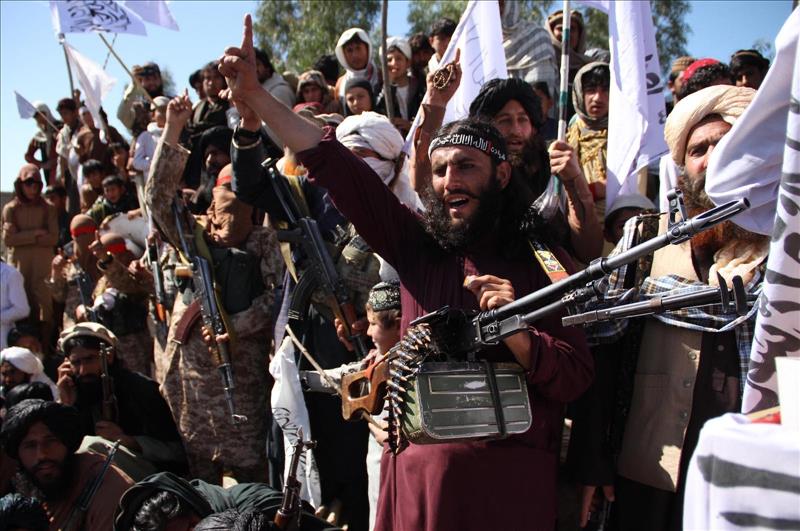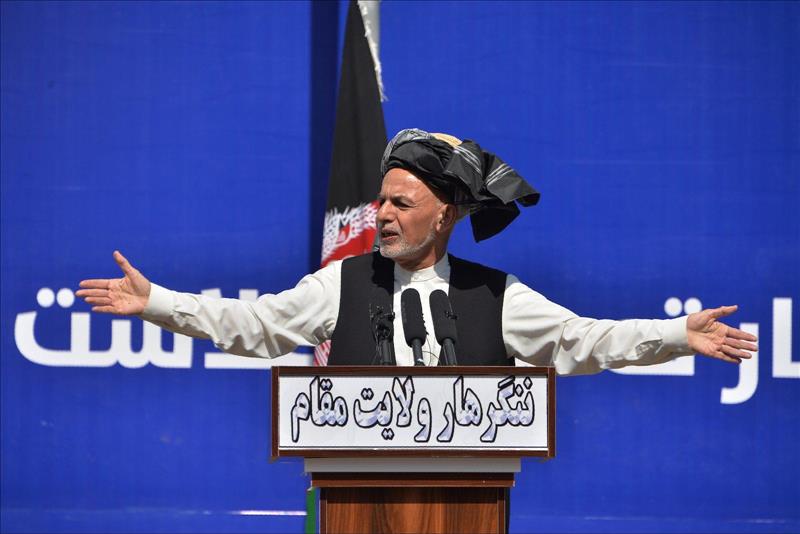(MENAFN- Asia Times) The 'extended troika' on the Afghan problem comprising the United States, Russia and China – and Pakistan – announced in Doha on Thursday a roadmap in consultation with President Ashraf Ghani's government and the Taliban on the way forward in immediate terms for reaching a peace settlement.
The announcement followed consultations in Doha with the involvement of the Qatari authorities as hosts and it coincides with the formal commencement of the US and NATO troop withdrawal from Afghanistan on Saturday.
The announcement builds on the Joe Biden administration's stated plans to complete the US troop withdrawal from Afghanistan by September 11, which now takes a note of finality notwithstanding the continuing calls by interest groups in the US for a review of the withdrawal decision.
Put differently, President Biden's decision now would also assume the nature of an international commitment given by Washington to Russia and China. This altogether lifts a cloud of uncertainty regarding the US decision on troop withdrawal.
The announcement in Doha is in the nature of a joint statement , to be issued in Washington, Moscow, Beijing and Islamabad. It envisages the following signposts, so to speak:
- An orderly withdrawal of foreign troops by September 11 is assured;
- During the withdrawal period, the peace process is to continue, no fighting will take place between Afghan parties and a 'steady transition of the situation' is to be expected;
- The safety of US and NATO troops and foreign embassies and diplomats is to be ensured;
- Afghan government counterterrorism operations shall be in cooperation with the international community;
- The Taliban are to shelve their annual 'spring offensive';
- Open engagement between the Kabul administration and the Taliban is visualized;
- Any takeover by force by any Afghan party will be unacceptable;
- The UN Security Council will review the sanctions against Taliban individuals and assets;
- Doha will continue to be the venue of intra-Afghan negotiations;
- The United Nations will have an expanded role to navigate the peace process.
Most importantly, the announcement calls for a settlement that envisages the creation of an 'independent, sovereign, unified, peaceful, democratic, neutral and self-sufficient Afghanistan.'
Significantly, 'neutral and self-sufficient' is an altogether new formulation, which implies, conceivably, that there shall be no foreign security presence remaining on Afghan soil; Afghanistan shall not join any military alliance or bloc; future Afghan governments will be committed to the pursuit of independent, non-aligned foreign policies.

People make their way along a market area in Kandahar. As US military departure looms, some residents in the former Taliban bastion were optimistic about peace Photo: Javed Tabveer/AFP
This goes a long way to accommodating the apprehensions in Moscow and Beijing that in a post-settlement scenario, the US might use Afghan soil to deploy extremist groups (Chechens, Uighurs, etc) as geopolitical tools to undertake covert operations in the Central Asian region – specifically, to destabilize Xinjiang, the North Caucasus, etc.
Equally, this provision of a 'neutral' Afghanistan also addresses a major Iranian concern.
In effect, this amounts to a moratorium on the pursuit of the 'great game,' which has been a continuing negative historically contributing to instability in Afghanistan dating back to the era of King Zahir Shah.
From a larger perspective, this mutual accommodation means a carefully balanced 'win-win' for all three big powers, notwithstanding the present international climate characterized by a new cold war.
The big question is how far this newfound spirit of mutual accommodation will rub on the United States' hostile policies toward Russia and China.
In this case, the US is a net gainer out of the cooperation from Russia and China, as Washington's prestige and NATO's future critically would depend on the ability to successfully navigate an orderly withdrawal from Afghanistan.

Afghan Taliban fighters and villagers in Laghman province celebrate an interim peace deal signed between US and Taliban in March, 2020. Photo: Wali Sabawoon/NurPhoto/AFP
Therefore, some positive fallout on the United States' relations with Russia and China cannot be ruled out. This sets a precedent, no doubt, for other situations such as the Iran nuclear issue or the North Korea problem, conflicts in Syria and Yemen, and so forth.
As regards Pakistan, it can draw great satisfaction in the above outcome as it is assured of a negotiated settlement in Afghanistan guaranteed by the members of the UN Security Council.
When the Geneva Accords were signed in February 1989, the focus was on the withdrawal of the Soviet troops from Afghanistan, while no thought was given to what would follow in the aftermath of that withdrawal. That lacuna, of course, led to a mad scramble for power in Kabul resulting in the mujahideen takeover in 1992 and the rise of the Taliban.
Therefore, Pakistan has great stakes in ensuring that history doesn't repeat in Afghanistan. Besides, the commitment of the international community virtually guarantees that the heavy burden of sustaining a new power structure in Kabul will not fall on Pakistan's shoulders once again.
Pakistan is greatly interested in firming up assistance from the international community, the US in particular, reaching any future government in Kabul for Afghanistan's reconstruction and development.
From a security perspective too, the above roadmap addresses Pakistan's legitimate concerns that 'spoilers' might exploit any power vacuum in Kabul. Pakistan's non-negotiable interest lies in having a friendly government in Kabul.
And Pakistan has repeatedly underscored its angst that India might manipulate the volatility in Afghanistan to its advantage. Clearly, that fear is no longer tenable.

Afghan President Ashraf Ghani gestures as he speaks during a gathering to assess the general security situation in Jalalabad on March 3, 2020. Photo: AFP/Noorullah Shirzada
In the emergent scenario, a transitional government may become unavoidable in Kabul at some point. That is not going to be easy, but the good part is that in a climate with such a high degree of international commitment, Afghans would rise to the occasion.
Conceivably, Ghani is nearing the end of the road. It is highly improbable that he or his circle of associates would have the audacity to undermine this 'code of conduct' that is underwritten jointly by three big powers – and, significantly, by Pakistan as well.
Equally, no regional state in its senses would act as a 'spoiler' to derail a roadmap that carries the imprimatur of the three big powers.
This article was produced in partnership by Indian Punchline and Globetrotter , which provided it to Asia Times.
M K Bhadrakumar is a former Indian diplomat.
MENAFN02052021000159011032ID1102012648
Legal Disclaimer:
MENAFN provides the information “as is” without warranty of any kind. We do not accept any responsibility or liability for the accuracy, content, images, videos, licenses, completeness, legality, or reliability of the information contained in this article. If you have any complaints or copyright issues related to this article, kindly contact the provider above.